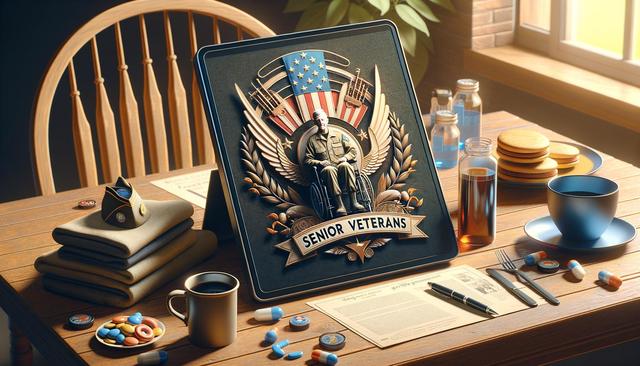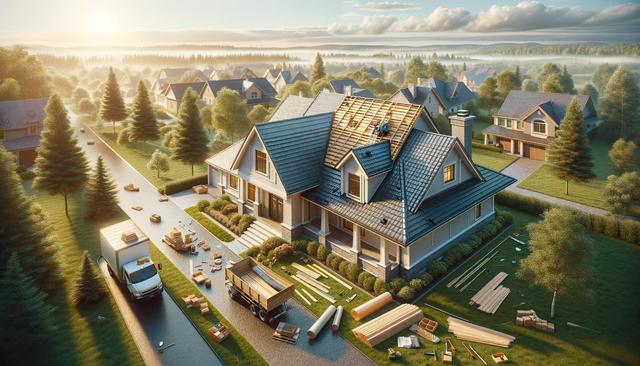
Honoring Senior Veterans: Support, Challenges, and Resources
Understanding the Life Experience of Senior Veterans
Senior veterans carry with them a rich history of service, sacrifice, and resilience. Many of these individuals served during times of war or in demanding peacetime roles, and their experiences often shape their outlook in retirement. As they transition into later stages of life, senior veterans may reflect on past deployments, camaraderie, and the challenges of reintegration into civilian society. These reflections can bring both pride and emotional complexity, particularly for those managing service-related trauma or health issues.
The journey of a senior veteran is also shaped by the era in which they served. For example, veterans from World War II, the Korean War, or the Vietnam War era may have faced vastly different military cultures and social attitudes compared to those who served in more recent decades. Understanding this context is important for providing meaningful support and recognizing the diversity within the senior veteran population.
Healthcare Needs and Access for Aging Veterans
Healthcare is a central concern for senior veterans, many of whom are managing chronic conditions or disabilities related to their service. The Department of Veterans Affairs (VA) provides a wide range of medical services, but navigating these benefits can be challenging, especially for aging individuals with limited mobility or cognitive decline. Some of the common health issues faced by senior veterans include:
- Post-traumatic stress disorder (PTSD)
- Hearing and vision loss
- Mobility impairments
- Heart disease, diabetes, and other chronic illnesses
Accessing quality care often depends on proximity to VA facilities, availability of transportation, and clarity around eligibility. Community-based programs and partnerships have become increasingly important, helping to bridge gaps in care and bring services closer to where veterans live. Telehealth services have also expanded access, offering convenient consultations and follow-ups for those who may struggle to travel.
Social Connection and Mental Well-Being
Social isolation is a growing concern among senior populations, and veterans are no exception. After years of structure and strong bonds formed during service, many veterans find civilian life to be less socially connected. As they age, this sense of isolation can deepen due to retirement, the loss of peers, or physical limitations. For senior veterans, maintaining mental well-being often hinges on staying engaged with others through activities, support groups, or volunteering.
Veteran-focused organizations and local communities have stepped in to create inclusive environments tailored to the needs of older veterans. These can include:
- Veteran community centers
- Peer support groups
- Recreational therapy programs
- Mentorship initiatives where senior veterans support younger service members
These efforts not only provide companionship but also reinforce a sense of purpose and belonging, which is vital for mental health and emotional resilience.
Financial Support and Benefits Navigation
Many senior veterans rely on a complex web of benefits and pensions to support themselves in retirement. Understanding and accessing these benefits, however, can be a significant challenge. From disability compensation to pension programs and survivor benefits, the range of available resources is broad but often difficult to navigate without assistance.
Common financial benefits include:
- VA disability compensation
- VA pension and Aid and Attendance benefits
- Social Security and Medicare coordination
- Property tax relief in some states
Organizations that assist with benefits navigation play a crucial role in helping senior veterans claim what they are entitled to. Accredited VA claims representatives, nonprofit legal aid, and online portals have made strides in simplifying the application process, though barriers still exist. For senior veterans on fixed incomes, timely access to these benefits can significantly affect their quality of life.
Housing and Long-Term Care Solutions
As veterans age, housing stability and access to long-term care become pressing concerns. Some senior veterans live independently, while others require assisted living or skilled nursing care. The VA offers long-term care options, including VA nursing homes, home-based primary care, and programs that allow veterans to receive care in their own homes through caregivers or family members.
However, demand often exceeds availability, and navigating eligibility criteria can be daunting. Factors that influence housing and care decisions include:
- Physical and cognitive health
- Access to VA or community care facilities
- Availability of caregivers or family support
- Financial resources and insurance coverage
Innovative housing models, such as veteran-specific senior housing communities and collaborative living arrangements, are emerging to meet these needs. These environments offer a combination of independence, support, and camaraderie that resonates strongly with many senior veterans.
Conclusion: Supporting Those Who Served
Senior veterans have given much throughout their lives, and as they age, it is crucial that society continues to recognize and respond to their evolving needs. From healthcare and housing to social connection and financial stability, the challenges they face are complex but not insurmountable. By fostering awareness, expanding resources, and encouraging community involvement, we can ensure that senior veterans live with dignity, respect, and the support they deserve. Their service may be in the past, but our commitment to their well-being must remain steadfast well into the future.


